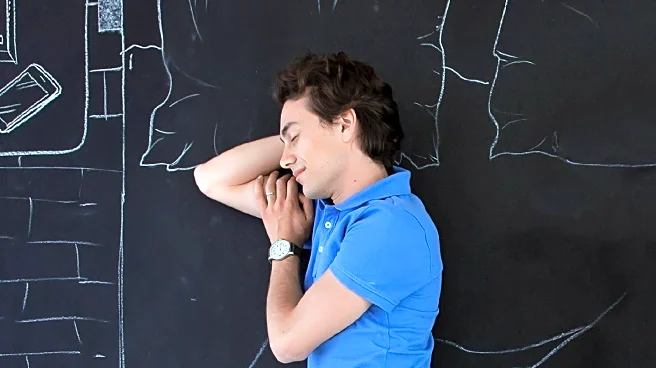What is the story about?
What's Happening?
A recent study conducted by Mass General Brigham, published in the journal SLEEP, has identified a significant correlation between community violence and insufficient sleep among teenagers. The research, which analyzed data from over 44,000 adolescents, found that those who slept less than the recommended eight to ten hours per night were more likely to have witnessed violence in their neighborhoods and to engage in violent behaviors themselves, such as fighting or carrying a weapon. The study highlights the impact of community safety on sleep patterns and subsequent behavior, emphasizing the need for addressing environmental factors affecting youth sleep.
Why It's Important?
The findings underscore the broader implications of community violence on adolescent health and behavior. Insufficient sleep not only affects individual health but also contributes to cycles of violence, potentially exacerbating social issues within communities. This research suggests that improving community safety could lead to better sleep habits and reduce violent behaviors among teens, highlighting the importance of public policy and community initiatives aimed at violence reduction. Stakeholders such as educators, policymakers, and community leaders may need to consider these factors when developing strategies to support youth well-being.
What's Next?
The research team plans to further investigate the direct effects of gun violence on teen sleep and explore how poor sleep may encourage violent behavior. Collaborations with communities are underway to develop initiatives that promote healthy sleep and help young people cope with the trauma of living amid violence. These efforts may include advocacy for noise reduction and nighttime violence prevention, aiming to create safer environments conducive to better sleep.
Beyond the Headlines
The study also found that a small minority of teens who reported sleeping more than ten hours per night had higher odds of witnessing and engaging in violence, suggesting underlying conditions such as depression or anxiety may be at play. This highlights the complexity of sleep-related issues and the need for comprehensive approaches to address mental health alongside community safety.















